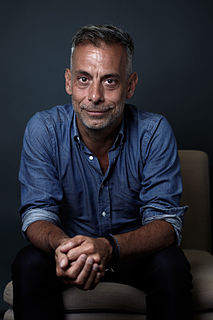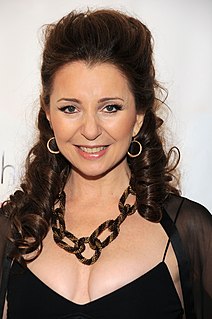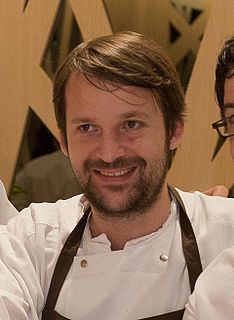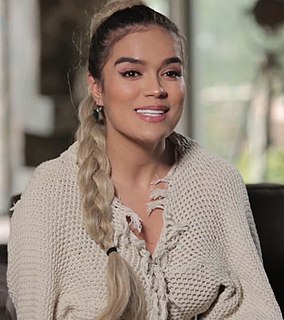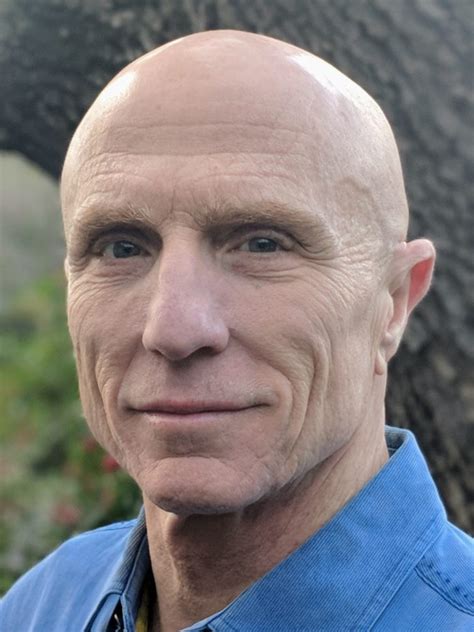A Quote by Joe Mantello
I want to do something very surprising next. I don't know what that is - something that has a high degree of risk.
Related Quotes
I think that in our part of the world, Scandinavia, we are one of the pioneers of showing that gastronomy can be something - high gastronomy can be something very, very present and doesn't have to involve, you know, what is perceived as the normal luxury items that belong in a high gastronomy restaurant.
I think that in our part of the world, Scandinavia, we are one of the pioneers of showing that gastronomy can be something - high gastronomy can be something very, very present and doesnt have to involve, you know, what is perceived as the normal luxury items that belong in a high gastronomy restaurant.
Everyone tries to create a world he can live in, and what he can't use he often can't see. But the real world is already created, and if your fabrication doesn't correspond, then even if you feel noble and insist on there being something better than what people call reality, that better something needn't try to exceed what, in its actuality, since we know it so little, may be very surprising. If a happy state of things, surprising; if miserable or tragic, no worse than what we invent.
I don't go through a torturous intellectual process to decide what to direct. I know what I want to direct the second I read something or hear a story. I just know when it grabs me in a certain way I want to direct it. And then I spend the next four to six months trying to talk myself out of it, because directing is really hard! But it's true, I know essentially when and what I want to do next... it's an undeniable feeling I get and it's not the same feeling I get when I wind up producing something.
You know, all is development. The principle is perpetually going on. First, there was nothing, then there was something; then-I forget the next-I think there were shells, then fishes; then we came-let me see-did we come next? Never mind that; we came at last. And at the next change there will be something very superior to us-something with wings. Ah! That's it: we were fishes, and I believe we shall be crows.
I don't know, it's dorky. Just like quotes and stuff. Something I want to see everyday or something I want to be there. I don't know. I can put a hole in the wall if I want. It's mine. It's very simple. It's a very tiny house, but I can do whatever I want to. I can rip up the terrible vinyl floor and recycle it. Just create a good space. A quiet place to be.
I just want the viewer to have a very informative and entertaining listen. I want them to feel like they've pulled up a chair right next to us. I hope to bring to the telecast what I call 'buddy information' - where you hear something and maybe the next day you say to your buddy, 'Hey, I heard something about this player or this team,' and they pass it on by word of mouth.
The book works better if I know everything I can about the ending. Not just what happens, but how it happens and what the language is; not just the last sentence, but enough of the sentences surrounding that last sentence to know what the tone of voice is. I imagined it as something almost musical. Then you are writing toward something; you know the sound of your voice at the end of the story. That's how you want to sound in those final sentences: the degree that it is uplifting or not, the degree that it is melancholic or not.
I think that sense of surprise, that you don't know where something is going, or what's going to happen, even as you write, that you're making it up as you go along - that's important to me. It's not a question of shock or surprise in a gimmicky way. It's that as you read, you become more deeply into something and into what happens, and become more involved and engaged, you're learning something or you're appreciating something or seeing something differently - that's what's surprising.
The risk of working with people you don't respect; the risk of working for a company whose values are incosistent with your own; the risk of compromising what's important; the risk of doing something that fails to express-or even contradicts--who you are. And then there is the most dangerous risk of all--the risk of spending your life not doing what you want on the bet that you can buy yourself the freedom to do it later.
